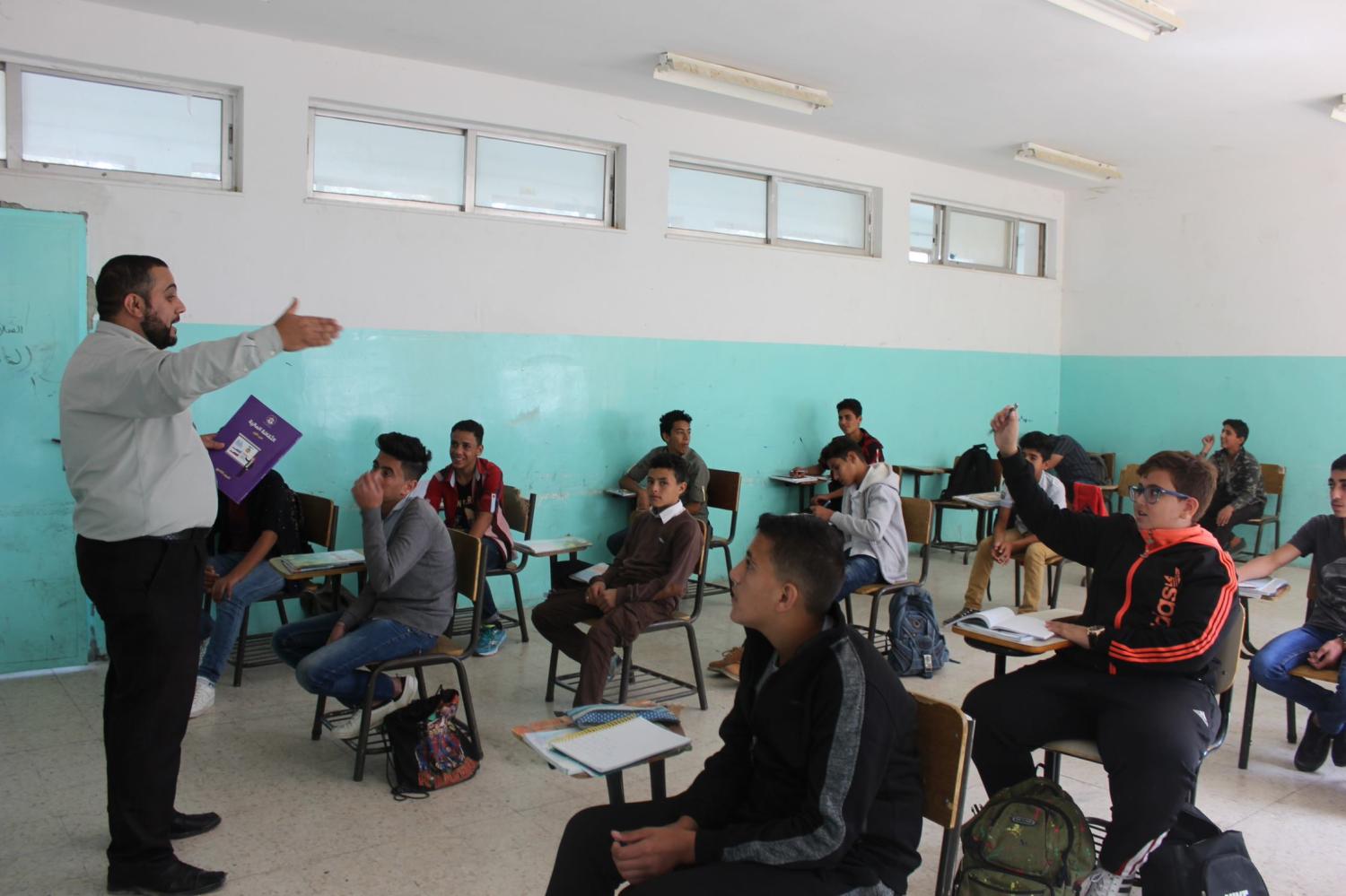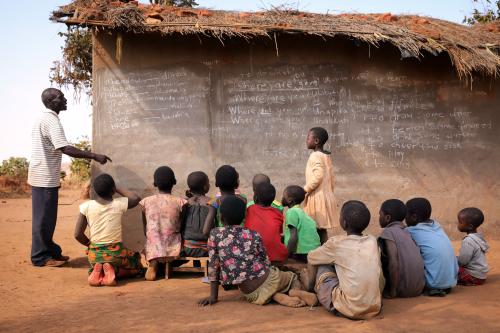This report appears in both English and Arabic. Please see the Arabic version here.
A growing body of research has shown that financial inclusion can be a powerful tool for addressing economic growth, poverty reduction, and gender and income inequality. Yet there are also risks associated with financial services, and thus, it is important for financial inclusion to be accompanied by efforts to improve financial literacy. Early exposure to financial knowledge and skills is particularly important for helping youth manage complex financial decisions and develop healthy long-term financial behaviors.
In recognition of the importance of financial literacy for young people, Jordan established the National Financial Education Program (FEP) as a core pillar of its National Financial Inclusion Strategy. The FEP offers a full curriculum dedicated to financial literacy that is designed to be interactive, engaging, and relevant to students’ daily lives. Since 2014, the Ministry of Education (MoE), the Jordanian nonprofit INJAZ, the Central Bank of Jordan and key partners from the financial and education sectors have been involved in designing, developing, and implementing a phased rollout of the program across the country. Today FEP is a compulsory class for all school students in grades 7-10, and an optional elective for students in grades 11 and 12.
Studying the FEP scaling journey
The Center for Universal Education (CUE) at Brookings has been investigating efforts to scale and sustain evidence-based initiatives leading to large-scale improvements in children’s learning. CUE has been implementing a series of collaborative action research initiatives called Real-time Scaling Labs (RTSL), in partnership with local institutions in several countries. The goal of these RTSLs is to generate evidence and provide practical recommendations around the process of scaling in global education—encouraging a stronger link between research and practice.
This new report focuses on one of the scaling labs in Jordan, launched in 2019 in collaboration with the Central Bank of Jordan (CBJ), the MoE, and INJAZ. The lab focused on this partnership-led process of implementing, adapting, and scaling the National Financial Education Program (FEP) in grades 7-12 across the country. While this report is focused on the story of the FEP, it also serves as a case study into larger questions of how an evidence-based initiative can achieve progress toward national sustainable scale, with lessons that are transferable beyond FEP and Jordan.
Section one of the report provides a brief background on the case, including an overview of the education ecosystem, movement to promote greater financial inclusion in Jordan, and brief descriptions of key actors and initiatives engaged with FEP. Section two details the story of implementing, adapting, and expanding FEP in Jordan to date—exploring critical factors, opportunities, and challenges related to its design, delivery, financing, and enabling environment.
The report delves into some of the reasons for the successful scaling of the FEP, including a public-private partnership (PPP) model that broke with traditional ways of working and brought together contributions from diverse actors for funding, advocacy, and implementation; a long timeframe to continuously test and refine the approach; a global movement for financial inclusion and a strong local enabling environment that supported scaling; and flexibility among all parties to adapt plans and react to a changing context in the wake of an international pandemic.
The report also highlights some recurring challenges faced in the scaling process, including monitoring and data collection, maintaining high-quality training at scale, and maintaining buy-in at all levels—from the classroom up to the stakeholders within the MoE. To try and address some of these challenges, the RTSL identified, adapted, and tested a series of change ideas, including direct teacher training; digitizing the FEP curriculum through videos and interactive platforms; and teacher learning circles to build peer support, mentorship and buy-in among FEP teachers.
The report concludes with considerations for key stakeholders in Jordan regarding the next phase of FEP, as well as scaling takeaways drawn from the FEP experience that can inform future scaling efforts in education in Jordan and beyond. The Jordanian government’s efforts to scale and sustain FEP—in partnership with the CBJ, INJAZ, and many other actors—has provided a fascinating case of what it takes to reach national scale, and this story will likely continue to provide rich insights into scaling and education transformation for Jordan and many countries around the world in the future.
Photo credit: Abdelhadi Qallab









